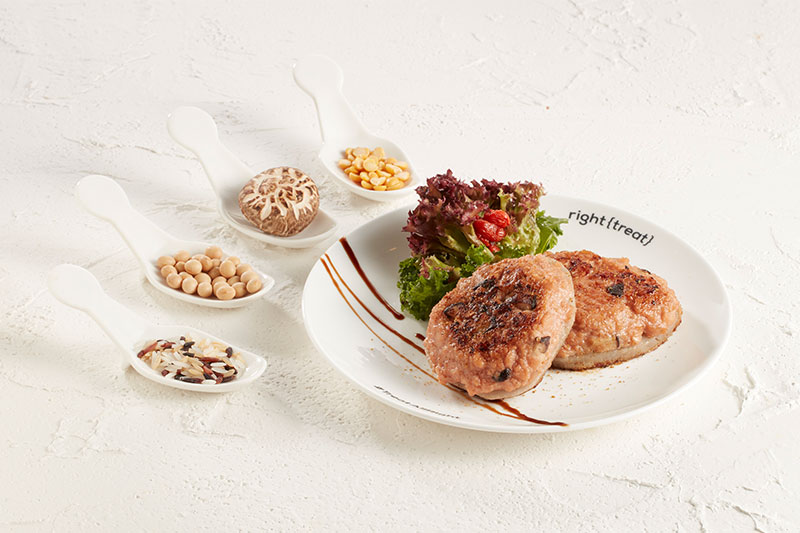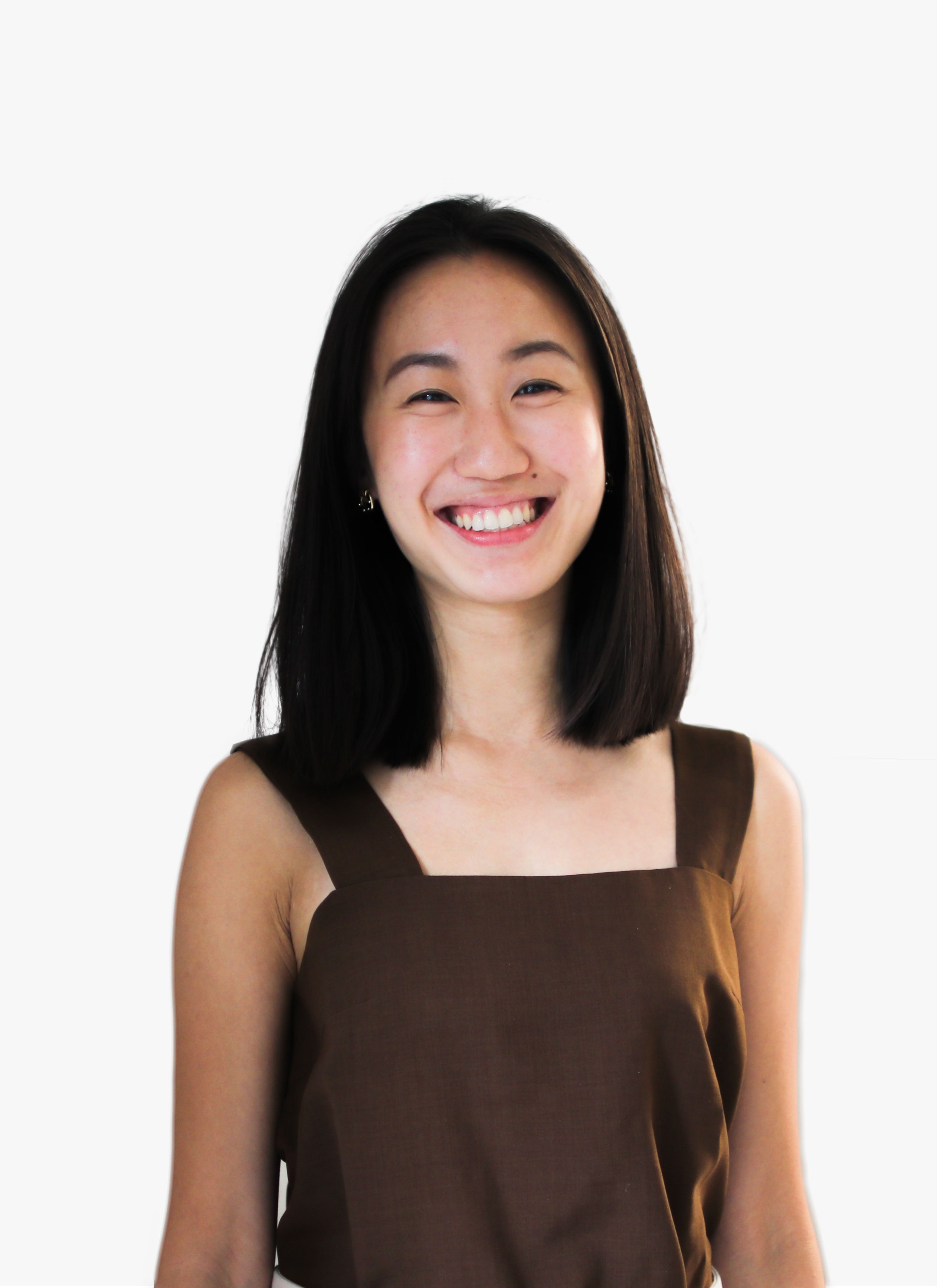David Yeung, the founder of Green Monday, wants to take on Asia’s meat market where pork accounts for 63% of it with his alternative pork product Omnipork.
The concept of vegetarianism may not be widely assimilated in Asian cuisine, but Hong Kong-based social venture Green Monday is making it their mission to turn the tide in necessary times. Founded in 2012 by local entrepreneur David Yeung, the group has been an early pioneer in the city’s green movement, having opened Asia’s very first plant-based grocers Green Common, launched a citywide Meat-Free Monday initiative for corporations and over 800 schools, and set up Green Monday Ventures to invest in sustainable startup hopefuls such as Beyond Meat and animal-free dairy product brand Perfect Day. Their latest venture, Omnipork, a plant-based alternative to pork meat, aims to take on the alternative meat market in Asia, addressing the 2:1 human-to-pig ratio in China where added hormones are used to compensate for supply. Founder David Yeung talked us through his plans to help people all across Asia radically rethink how and what they eat.

A long-term vegetarian, David’s original standpoint came about thanks to his compassion towards animals. However, the real gamechanger for him was coming across the UN’s 2006 report Livestock’s Long Shadow. “It shifted my paradigm and my perspective, where your choice of diet isn’t just a personal health or moral decision; it is a collective survival decision. Just like smoking, it’s not just whether you care about your health or not, but that you’re affecting other people as well.” Since then, he has made it his mission to spark change, no matter how big or small. “It doesn’t need to be a binary choice. It’s much more about that first step. Whether it’s one day a week, one meal a day, whatever it is that reduces meat consumption.”
You might also like The Impossible Burger Hits the Shelves in the US. Will Asia be Next?
Coming from a business family with an engineering background, David’s innate desire to solve problems was a driver for initiating Green Monday. “Being an entrepreneur is very important for sustainability. Other than just talking about the problems, we have to come up with solutions.” The founding of the organisation is also rooted in the inspiration he takes from Buddhist wisdom. “Whatever you do to the planet, it will come back to haunt you. It is very much a karmic effect.” That’s why Green Monday has made building a community a core priority. Aside from their Green Common shops and restaurants in malls dotted around HK, Green Monday also works with schools and corporations to encourage the adoption of meat-free meals in the hope of spreading the seeds of their mission. “Selling a product is one thing, but changing people’s fundamental concepts and behaviour is completely different. There are intangible things such as cultural, social, and emotional aspects you need to consider in order to create that major shift in society.”

For David, it’s abundantly clear that the time to reinvent our entire food ecosystem is now. “This year is kind of the official year where things have started to open up. When we started eight years ago, people thought we were crazy. I mean, David Yeung was almost like an alien! Nothing was going on in terms of the ecosystem – no investors, no entrepreneurs, no activists, no nothing.” Since then, the tables have more than turned – just look at US plant-based alternative meat Beyond Meat’s IPO in May. “It’s a very good sign that this movement isn’t just hype, a short time fad, but something that is here to stay,” he suggests.
To that end, Green Monday’s most recent initiative has been to launch an Asian version of meat-free meat, Omnipork. “Different products cater for different applications, and this is great. But, Asian families don’t cook burgers at home,” says David of the alternative beef products that had been brought to the market. What they rely on most, however, is pork as a staple meat. That’s why David aimed to bring the pig (豕) into Chinese homes (家) in a more sustainable way, tasking his team at Right Treat, a food-tech startup supported by Green Monday, to create a plant-based, alternative pork product specifically for the Asian market. Omnipork is made up of plant protein from pea, non-GMO soy, shiitake mushroom & rice, and has already made its way into staple dishes like mouth-watering ‘Siu Mai’ around town. Its versatility has allowed chefs to adapt it to their local flavours, and it’s now readily available in Taiwan, Singapore, Thailand and Japan.

Already, you can find Omnipork in local eateries from Shanghainese restaurant King of Sheng Jian to Michelin-starred hoteliers Cordis, Grand Hyatt and Marriott. It’s in supermarkets already, and you can even find it in the skies as an inflight option on Cathay Pacific. All this goes to exemplify David’s goal “to make it easy, convenient, and tasty.” When asked where Omnipork stands with its competitors, “Meat is our real competition,” he laughs.
Having just announced the launch of Omnipork’s debut in mainland China with China’s second-largest e-commerce platform Tmall Global, David is optimistic about the opportunity. “Obviously we have a continent called Asia, which is kind of big,” he laughs. “How do you reach four billion people? It’s quite a tall task, so I think we’ve got a lot on our plate. But once that innovation starts to happen, there’s no reason why we cannot export these innovations back to the world.” First, however, change starts on his doorstep, and the evidence is that even the most traditional elements of Asian cuisine are gearing up for change. “One of the things that personally really touched me was when I walked into this hawker centre in Singapore, their whole menu featured Omnipork. It showed me two things. On the one hand, clearly we’re growing beyond Hong Kong, and on the other, we are reaching the masses. And ultimately, that’s what we want to do – it’s to make Green Common.”
Related Articles
You’ve Had The Meatless Burger. Is It Time To Tuck Into Meatless Fish?
Hong Kong’s Vegan Queen on Her Latest Foodie Venture
Accelerator Brinc Founder Talks About Planting the Seeds of AgriTech





